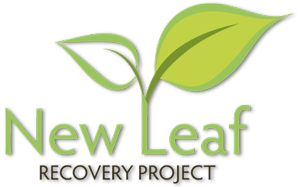The Hidden Dangers of Laughing Gas: A Gateway Drug to Addiction
As parents, we all want the best for our children, and their well-being is a top priority. In today's world, where substance abuse is a growing concern, it's crucial for parents to be aware of the dangers their children might face.
One such concern that has been on the rise in the UK is the use of laughing gas, also known as nitrous oxide.
This seemingly harmless party drug can act as a gateway to addiction and cause significant harm to young individuals. This week, we aim to shed some light on the risks associated with laughing gas and provide guidance for potentially concerned parents.

Understanding Laughing Gas
Laughing gas, or nitrous oxide, is a colourless and odourless gas that has legitimate uses in medical and dental settings as an anaesthetic and analgesic (pain reliever). However, it has gained popularity among young people for its euphoric effects when inhaled. Nitrous oxide is typically sold in small canisters, commonly known as "whippits," which are often used to fill balloons or whipped cream dispensers. The ease of access to these canisters and their low cost have contributed to their widespread use among young individuals.
The Gateway Drug Phenomenon
Laughing gas is often perceived as a harmless party drug due to its legal status and availability. Unfortunately, this misconception can lead to a dangerous path towards addiction. The use of laughing gas can create a false sense of security, normalising substance abuse and potentially leading individuals to experiment with more potent and dangerous drugs. Therefore, it is crucial to address the issue before it escalates.
Risks and Health Hazards of Laughing Gas
While laughing gas may induce temporary feelings of euphoria and relaxation, it is essential to understand the potential risks and health hazards associated with its use:
- Oxygen deprivation: Inhaling nitrous oxide directly from the canister or using ill-fitting masks can lead to oxygen deprivation. Oxygen is vital for brain function, and a lack of it can cause dizziness, loss of consciousness, and even permanent brain damage.
- Physical side effects: Laughing gas abuse can lead to various physical side effects, including nausea, dizziness, headaches, and fatigue. Prolonged use may also cause vitamin B12 deficiency, resulting in nerve damage.
- Psychological impact: Regular use of laughing gas can have adverse effects on mental health. It may contribute to mood swings, anxiety, depression, and cognitive impairment.
- Social consequences: Addiction to laughing gas can lead to strained relationships, academic problems, and legal issues. It can significantly impact an individual's personal and professional life.
Prevention and Intervention
As parents, it's important to be proactive in preventing laughing gas abuse and addressing any concerns you may have for your children. Here are some steps you can take:
- Educate yourself: Learn about the risks, signs of use, and the impact of laughing gas abuse. Stay informed to have meaningful conversations with your children.
- Open communication: Create an open and non-judgmental space for your children to discuss their experiences and concerns. Encourage honest conversations about substance abuse and its consequences.
- Set clear boundaries: Establish rules and expectations regarding substance abuse. Clearly communicate your concerns and make sure your children understand the potential risks involved.
- Lead by example: Be a positive role model by demonstrating responsible behaviour and avoiding substance abuse yourself. Your actions speak louder than words.
- Seek professional help: If you suspect your child is using laughing gas or other substances, consider reaching out to a professional for guidance. They can provide expert advice and support to help your child recover.
Taking Action for Your Child's Wellbeing
Remember, early intervention and open communication are key when addressing substance abuse concerns in young individuals. By seeking professional help and utilising available resources, you can provide the necessary support to guide your child toward recovery and a healthier future.

